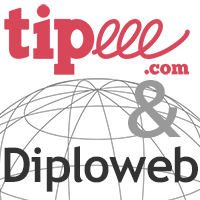Can the current crisis represent also an opportunity to reaffirm the EU as a global leader ?
Par , le 6 novembre 2020 


L’auteur s’exprime ici à titre personnel. Bruno Dupré est Conseiller Sécurité et Défense, Secrétariat Général du Service européen pour l’action extérieure, European External Action Service ‑ EEAS @eu_eeas
To what extent the current crisis can represent an opportunity to reaffirm the EU as a global leader ? (I) Can the EU really go its own way or will it inevitably be trapped between the United States and China ? (II) How can the EU in general and the EEAS in particular adapt to this international context and become an instrument to achieve Strategic Autonomy ? (III)
THE Covid19 pandemic is far from being over but it is already accelerating and accentuating major existing trends as well as generating new dynamics. While there are still many unknowns, the sheer scale of the crisis points to a far-reaching impact with lasting consequences and drastic changes in the societal, economic and political spheres both within states and globally.
The pre-Covid19 environment was not short of challenges for the EU. The crisis will however deepen geopolitical and geo-economic pressures and threaten the vital interests and values of the EU. It will also be an opportunity to reassess policy options and help the transformation of the EU into a full-fledged geopolitical actor.
How to become credible ?
The effectiveness and credibility of the EU response starts at home (e.g. solidarity, coordinated responses and exit strategies, European recovery Plan). But a strong global EU agenda is also needed to protect our interests and values, factoring in the many policy strands the current Commission has set, ranging from climate and digital issues, with the overall aim of building back better. It has become clear that the EU needs to be ready to act collectively each time possible but autonomously each time it must. This Strategic Autonomy should, in the context of an increased Sino-American rivalry, also provide more leverage to implement our vision of what a cooperative, rule-based order should be, in accordance with the values we promote, but also our concrete interests we must defend. One thing is sure. Whatever the results of the US election, it would be naïve to believe that we can come back to where we used to be. From now on, we can only try to turn existing challenges into new opportunities.

I. To what extent the current crisis can represent an opportunity to reaffirm the EU as a global leader ?
. The current crisis is, first, an opportunity to recall internally all the work done by the EU for the last two years on strategic autonomy (Team Europe, Recovery Plan, Next EU Generation) ;
. It is also an opportunity to further assess, in a systemic way, our vulnerabilities (particularly our critical sectors : health, energy, defence, digital, space, maritime) and our strengths (norms and standards, competition, sanctions, trade and industrial policy). New actions must be taken on standards setting in key sectors : e.g. Digital, AI, biotech ;
. Oportunity to better match programming and politics (Recovery package, Team Europe) and improving linkage between short and longer term. The all discussion on Multiannual Financial Framework tends to address this tension ;
. Opportunity to increase coherence between economic and security issues in order to become more strategic in our thinking : "acting collectively each time we can, autonomously when we must". The Strategic Compass, in the making, and the Industrial Strategy Communication, adopted in March 2020, go in that direction ;
. Opportunity to become more effective and operational at EU foreign affair level : QMV, European Security Council, EU MS as chefs de file on key files ;
. Opportunity to reaffirm our interests and values (solidarity, rule of law, governance, human rights…) in multilateral (UN) and regional settings (AU, Arab League, ASEAN), but also to reassess our political and financial support to these organizations (IMF, WTO, WHO, including regional ones) ;
. Opportunity to open new flexible alliances and partnerships based not only on assistance but on two way street cooperation. The new Africa strategy is aiming toward that goal. We will come back to this point.
II. Can the EU really go its own way or will it inevitably be trapped between the United States and China ?
. There is no doubt that competition (economic, security, health, digital competition) between China and the US will be devastating for Europe’s security and prosperity (whatever the result of the US elections) and for the stability of our neighbourhood (East and South). We should not as well forget the spoiler role played by Russia in our neighbourhood and greater neighbourhood.
. However, going its "own way" does not mean for the EU renouncing to cooperation with the US and China :
. First, the EU is not exactly "trapped in the middle" of the two superpowers : we share with the US essential values and interests that we do not share with China. This must be recognized before adjusting our policies after the US elections. What we need to do, however, is to set policy options to redefine current asymmetric dependence (military, financial ones) and limit abuse of US central place in the international order. It is not just about burden sharing (NATO) it is also about taking responsibility on the international scene (at least in EU backyard).
. Second, systemic rivalry with China does not mean that we have no common interests with Beijing : Green Deal, safer maritime routes, stable critical supply chains (reorganizing supply chains without disrupting them or developing new protectionist barriers), multilateral governance. A systemic rival is not incompatible with a strategic partner. We have to learn, as the Chinese teach us on a daily basis, how to practice constructive ambiguity and complex duality. For that we need to stop giving lessons to the world ;
. Going its own way means acting cooperatively each time we can, and autonomously each time we must :
. Acting cooperatively meaning developing alternative flexible alliances with like-minded (Australia, Canada, India, Japan, South Korea) in strategic areas (digital, health, environment, security including military cooperation, maritime) ;
. Acting cooperatively also means to reconsider our partnership with Africa from assistance to a two way street cooperation on critical issues (health, security, climate change, digital) including CSDP missions (broader mandates). See CSDP review in Africa, in particular in Sahel ;
. Going its own way also means finding the right balance between collective defence (article 5 NATO Treaty), mutual defence (article 42.7 TEU) and solidarity clause (article 222 TFEU). Covid crisis management inside the EU was a good example that we did not find this balance yet (FA Maas activating the solidarity clause under article 222 last March and finding no real support ).
III. How can the EU in general and the EEAS in particular adapt to this international context and become an instrument to achieve Strategic Autonomy ?
. To adapt to this international context, the EU has recently adopted a vast tool box of political, financial and regulatory measures that will strengthen strategic autonomy while protecting effective multilateralism :
. The New EC Strategic Agenda 2019-2024 : Defining a political vision is key to really entering the 21 century ;
. The Recovery Package and Team Europe will also contribute to preserving our identity, autonomy and solidarity. Internal and external solidarity are key paradigms of strategic autonomy ;
. Trade Policy Review : The concept of "open strategy autonomy" is here to explain that defending our interests does not mean more protectionism or (re)creating a Fortress Europe.
. Competition Policy Review : Linking competition law with new Industrial Strategy and State Aid Policy will allow to push back those who do not respect the values and rules of the international order ;
. Foreign Direct Investment : the Commission is convincing 13 EU MS, currently without current FDI screening mechanism, to adopt one ;
. Sanctions : to what extent does INSTEX represent a role model that could be applied to other contexts ?
. New Industrial Strategy for Europe : innovation and protection of SMEs
. To adapt to this international context, a certain number of thematic and regional European strategies may need to be revised or adopted. Among them :
. Space Strategy
. Maritime Security Strategy
. Artic Strategy
. Africa Strategy
. Asia connectivity Strategy
But the crux of our adaptation is political will and collective responsibility
. First, most of European Strategies (adopted both by the EU and EU MS) are not implemented to the extent they should. Commitment by EU MS is paramount to delivering long term policy actions ;
. Second, Council and FAC should "spend more time defining political priorities instead of reacting to crises" (Quoting Pierre Vimont) ;
. Third, QMV for foreign affairs could be adopted under certain circumstances. Constructive abstention will be key. This QMV is a possible topic for the Conference on the future of Europe ;
. Fourth, we could define "chefs de file" among EU MS on specific regions or topics in order to develop a sense of European collective leadership.
*
Conclusion : There is a current dynamics on "European Strategic Autonomy". It is the result of two years of proactive action by the EEAS to expand this French military concept to economic, finance and trade issues. It took, indeed, two years for the European Community to create a sense of self ownership, be it for the Commission (with its open strategic autonomy), the European Council (with Charles Michel recent statements about strategic autonomy being the objective of this generation of leaders), and the EU Parliament with its most recent report (EPRS report on strategic autonomy). However, some EU MS (8 of them) remain very cautious about the concept and work still remains to be done to get this through. Should we succeed, we will be better prepared to move away from current "ad-hoc responses" which come with too little and too late to a true European vision of our own future with concrete priorities. With a COVID pandemic that is here to stay and the recent US elections, time is of the essence.
Copyright Novembre 2020-Dupré/Diploweb.com
Pour ne rien rater de nos nouvelles publications, abonnez-vous à la Lettre du Diploweb !
Direction

Directeur, P. Verluise
Conseil scientifique
Mentoring et coaching géopolitique
Présenter le Diploweb.com
Charte du site
Auteurs
Proposer un article
Retrouvez la chaîne Diploweb sur :








